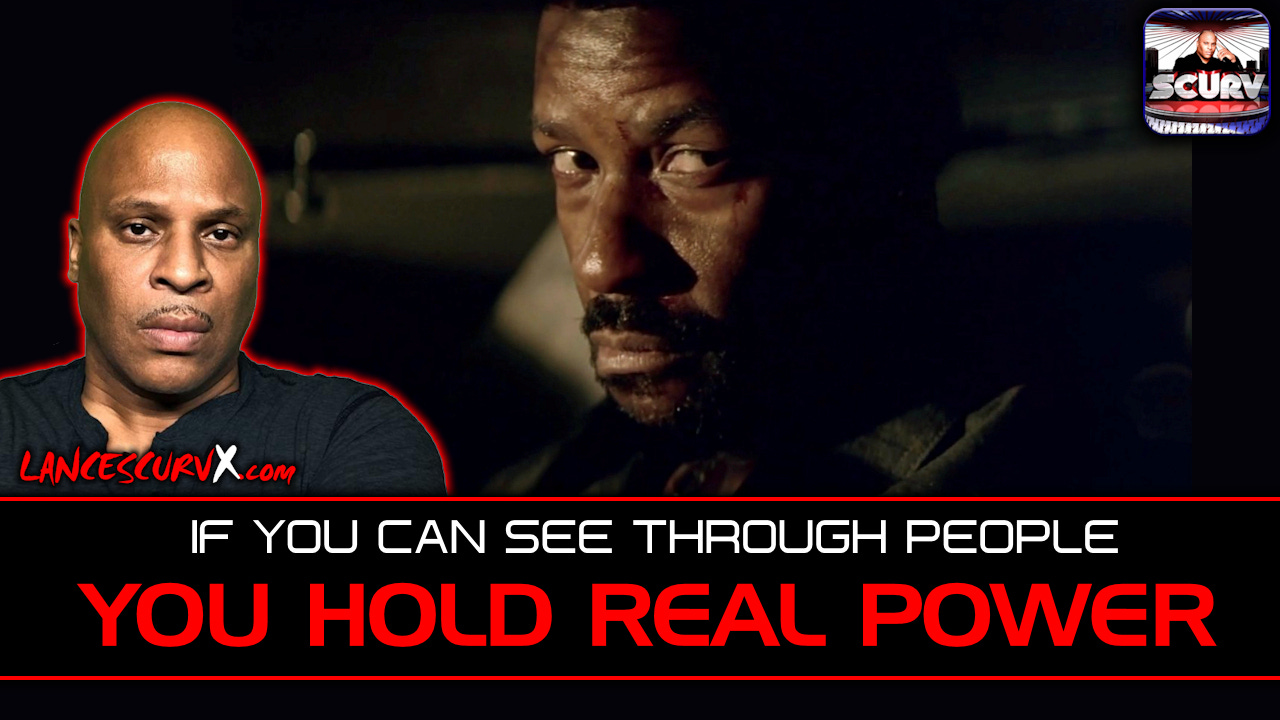IF YOU CAN SEE THROUGH PEOPLE, YOU HOLD REAL POWER...
The most dangerous thing you can do in this life is believe that everyone you meet is exactly who they seem to be. The truth is, much of what people show you is not the whole picture—it’s a version they have chosen to present. I’ve learned this the hard way trusting the deceitful visages presented to me over the years. Some wear kindness like a coat they put on for certain occasions. Others wrap themselves in charm like it’s their greatest weapon. But behind the smiles, the small talk, and the “I’m just being real” moments, there are layers most will never reveal unless you know how to look deeper.
Many of us grow up believing that honesty is the default setting in human beings. We’re taught to think that people mean what they say and that a handshake or a promise still holds value. But the world has a way of teaching a harder lesson. If you walk through life expecting fairness and transparency, you might end up hurt, confused, or even betrayed. Not because everyone is cruel, but because self-interest often comes before truth. I guarantee you will know this to be the truth.
You can’t ignore the fact that people have motives—sometimes obvious, sometimes/oftentimes hidden. That polite co-worker who always compliments your work might be waiting for the right moment to take credit for it. That person who never seems to have an opinion might be quietly gathering information to use later. Even silence can be a calculated move. The sooner you understand that, the sooner you’ll stop being blindsided.
This is not about becoming paranoid or suspicious of everyone you meet. It’s about becoming aware. Awareness is power. It allows you to move with wisdom instead of walking blindly into traps. When you can see beyond the surface, you protect not just your feelings but your future.
The American African community has always had to read between the lines to survive. From job interviews to neighborhood politics, from friendships to business deals, being able to recognize the difference between what’s said and what’s meant has been a form of self-protection. Today, that skill is still just as necessary, maybe even more so.
People are driven by what benefits them—status, security, belonging, and power. This isn’t a sign that humanity is broken; it’s simply how human nature works. But if you don’t take the time to understand what someone wants, you will misunderstand why they do what they do. You’ll think kindness means loyalty, when it may simply mean opportunity.
In the workplace, for example, skill alone rarely gets you ahead. The office is a web of emotions, egos, and unspoken rules. If you don’t recognize that certain conversations happen in hushed tones for a reason, you’ll share too much, too soon, with the wrong person. If you don’t see that silence can mean disagreement—or worse, strategy—you’ll believe you have allies when you really have competitors.
Human nature is full of polite lies. People say, “I’m fine,” when they’re angry. They say, “We’ll follow up,” when they have no intention of doing so. They say, “I love you,” when they are really afraid of losing control. If you take every word at face value, you open the door to disappointment. You will give energy to those who only take and trust those who only act for themselves.
Learning to read beyond the words means paying attention to body language, timing, and tone. It means noticing when someone changes the subject to avoid answering a question. It means asking yourself not just, “What did they say?” but “Why did they say it now?” The truth often lives in the spaces between the words.
This skill isn’t about becoming cold or disconnected. It’s about becoming wise. Righteously slick. Wisdom lets you interact with the world without letting the world break you. It allows you to forgive without being fooled, to show kindness without being taken advantage of, and to see reality without losing hope.
Seeing through people is not about losing your compassion—it’s about strengthening it with wisdom. When you know the truth about human nature, you can love more intentionally and protect yourself from those who would misuse your trust. You stop giving your best to those who only see you as a resource.
Being aware also means accepting that everyone, including yourself, wears a mask sometimes. We all adjust how we present ourselves depending on the situation. The key difference is whether that mask is hiding harm or simply protecting privacy. Learning to tell the difference can save you from heartache and wasted time.
This awareness is especially valuable in a world that often undervalues our voices and overlooks our worth. For American Africans, history has shown us how dangerous it can be to take words and appearances at face value. The lessons passed down from elders about “watching people” and “listening with more than your ears” are not just wisdom—they are survival tools.
If you practice this skill, you’ll begin to notice patterns. You’ll see when someone’s kindness is genuine and when it’s a calculated move. You’ll recognize when a disagreement is about principle and when it’s about ego. You’ll know when to speak, when to stay silent, and when to walk away entirely.
The power is not just in seeing through others—it’s in choosing how you respond. Once you understand the game, you can play it without losing yourself. You can remain patient, strong, and forgiving, while never again being naive. And that, in the end, is real power.
LanceScurv




